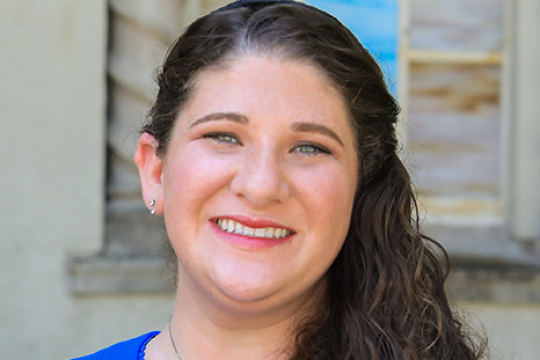
Each month I field dozens of inquiries from people across North America – and from South America, Asia, Europe, and the UK – eager to connect or reconnect with Judaism and the Jewish community. Many requests convey a longing and resolve that are deep and urgent.
One way they can do so is through Introduction to Judaism online, a 21-session course specifically designed and reserved for individuals without access to an in-person Introduction to Judaism course. (When students apply from places where local Introduction to Judaism classes are available they are referred to their local community.)
The new online trimester course enables geographically remote students to take an Introduction to Judaism course through a Reform lens. Using video-conferencing, we create a vibrant, online classroom community with offline reading assignments that supplement the live weekly sessions.
Each individual and couple has unique reasons for joining the online course, but a few participants stand out to me:
- A couple from northern Ohio continues to study joyfully, even though the husband was deployed to Afghanistan in July. Each Thursday (at 4:30 a.m. local time), he logs into the virtual classroom to join the panel of familiar faces, including his wife, and continues his journey of Jewish study.
- In Florida, a mother-daughter team unable to get to an in-person class were referred to us by their rabbi-educator and now learn together online each week.
- In another part of Florida, a couple, also referred by a congregational rabbi, studies online because one partner travels to Puerto Rico during the week for business.
- The online course serves two women – one in Chicago and one in Georgia – whose medical conditions prevent them from driving to the local class.
The Introduction to Judaism online application asks students to articulate what led them to the course and their answers, too, offer meaningful insights:
- “Over a year ago, I was asked about my relationship with God. I told him, ‘I don't know, but I'd like to find out.’ Initially I thought about digging deeper into the faith I was raised in, but I felt myself resisting, so I started looking elsewhere. The more I read and learned about Judaism, the more right it felt. Something just settled in me, a fresh-sheets-on-the-bed feeling.”
- “I have a Jewish heritage; my father is Jewish. I was not raised in the faith and have developed a deep longing… seeking a closer relationship with God since beginning sobriety and following AA …”
Access to an online, real-time class taught by seasoned faculty is vital for students who lack resources, mobility, or live in smaller or Jewishly isolated communities that lack a critical mass of students or local resources necessary to maintain an in-person class. In these instances, students would otherwise be unable to study in an Introduction to Judaism course.
In congregations with one rabbi, it may be a more efficient use of time and resources to offer students the advantage of a large, diverse cohort online, rather than running a private, in-person class for a few people. Rabbi David Wirtschafter of Temple Adath Israel in Lexington, KY, for example, refers his conversion students and interfaith couples to Introduction to Judaism online. As he notes:
“Having this resource gives me the peace of mind to know that students are getting good instruction. If we can get sufficient enrollment for me to do this in-person that would be nice but until then, the ability to send students to Intro online allows them to experience the course in the community rather than doing it alone.”
More than 75 percent of online participants tell us they plan to seek out further Jewish learning; more than 65 percent plan to participate in Jewish communal activities, where available; and 65 percent are now part of or plan to connect with a synagogue or Jewish community. One hundred percent of participants – every single one to date – has indicated it is extremely likely they will recommend the course to a friend.
Professional and lay leaders in communities where in-person Introduction to Judaism classes are not offered or who experience difficulty in gathering a cohort of students together should strongly consider directing students to the URJ’s Introduction to Judaism online.
New Introduction to Judaism online cohorts start about every 2-3 months. Interested students should complete this form. For more information email Rabbi Ellen Nemhauser.
Have something to say about this post? Join the conversation in The Tent, the social network for congregational leaders of the Reform Movement. You can also tweet us or tell us how you feel on Facebook.
Related Posts

URJ Helps Rabbis and Students Navigate Jewish Journeys Online

Introduction to Judaism: Five Best Practices to Try

